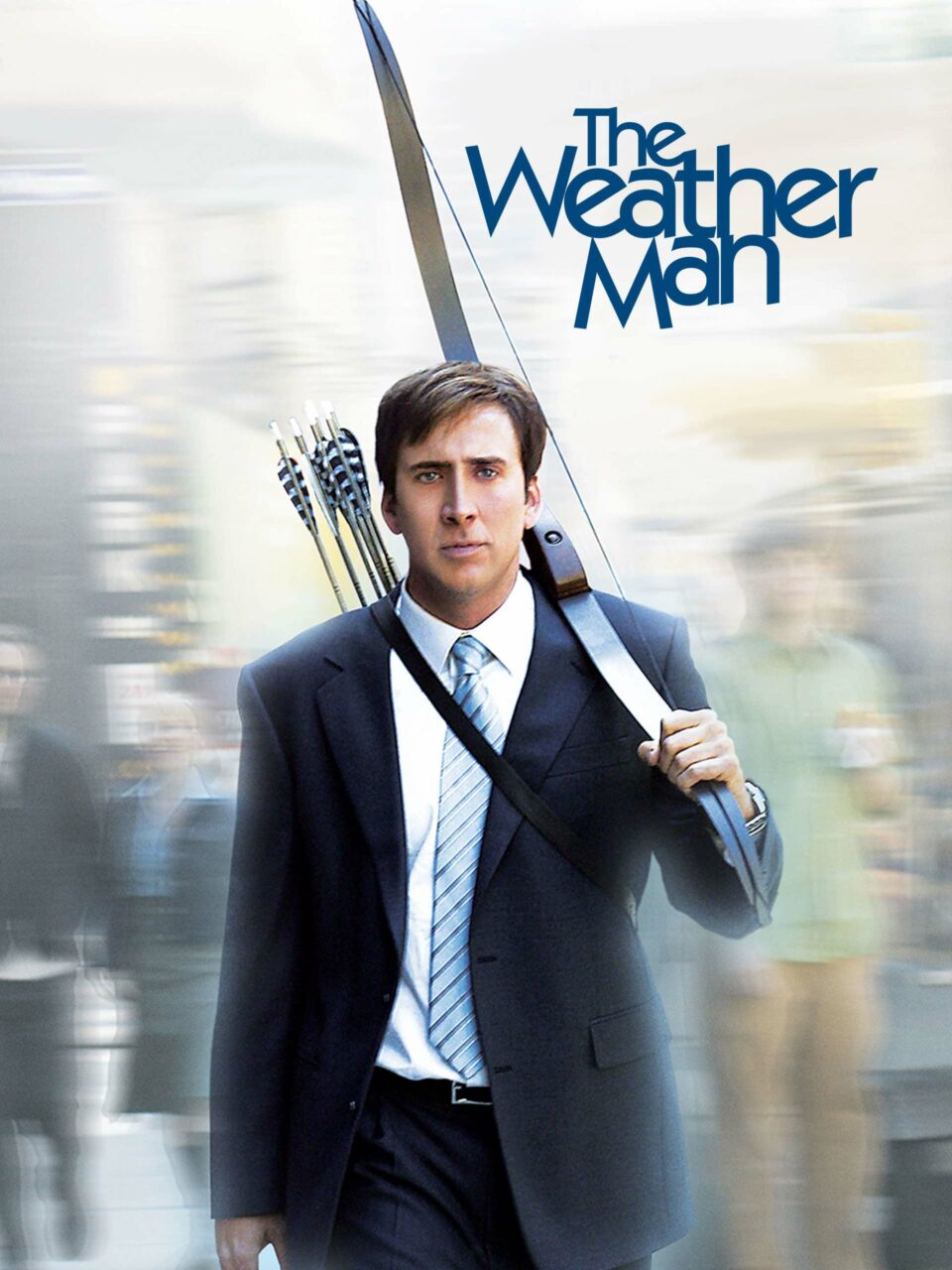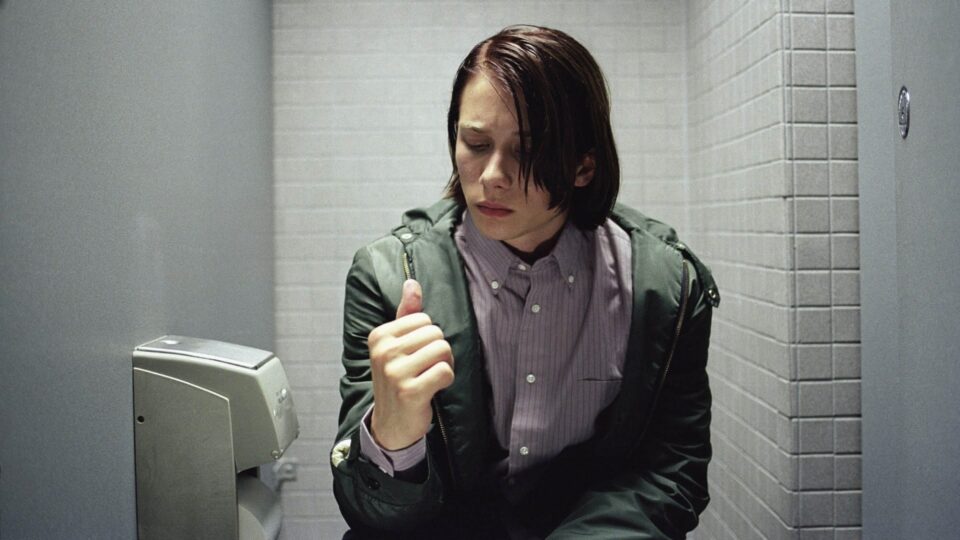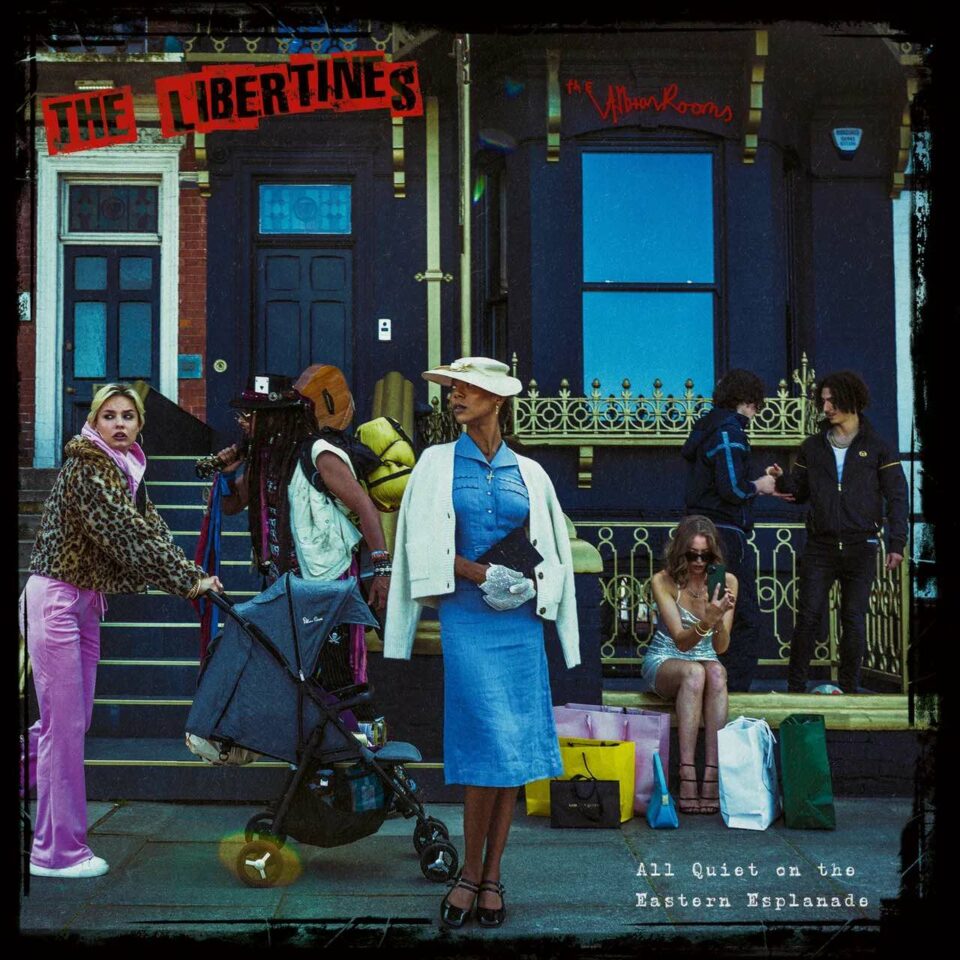Growing up outside of any major city in the mid-’00s, there weren’t a whole lot of options for obtaining physical media—something which, you must understand, was a much more valuable commodity in a pre-streaming era. It felt like a minor historical event in my hometown when our first Best Buy arrived shortly after the shuttering of our Media Play, while the bleak sight of our mom-and-pop-esque CD Warehouse got Mondo-Burgered out of existence not long after an Exchange location moved in across the street, its over-eager and underaged staff always a little too enthusiastic to unlock a glass case to help you retrieve a title they almost certainly knew nothing about (“I love Spike Johns!” one employee exclaimed while scanning the copy of Being John Malkovich I’d requested for a weirdly long amount of time).
The only alternative to the mainstream movie selection of Best Buy and the intense atmosphere of The Exchange (I don’t know if Muse was actually always blaring through those speakers or if I just remember it that way) was Amazon, a webstore I could only access after bugging my dad to put in an order on his account after I’d scrounged up some cash, like a teenager accosting a stranger heading into a liquor store. Which left the twin totems of mid-aughts bookstore chains: the still-inexplicably-thriving Barnes & Noble and Borders, quite literally the Kmart to B&N’s domineering Walmart. Based on the fact that the majority of my DVDs had poorly scratched-off price tags on the spines, I probably purchased most of them from The Exchange’s expansive collection of cheap used movies, but only after first scouting them out at either bookstore chain.
I have visceral memories of browsing their media departments—always tucked away in unassuming corners—as a teenager, flipping through those huge, clattering, seemingly bullet-proof plastic casings containing their DVDs. I didn’t have the requisite $20-plus for their movies (were we paying for the plastic cases, too?), but I vividly recall making mental notes (or T9ing something into my Samsung) of all the titles that grabbed my attention with the indelible imagery of their covers, much in the same way our generation had certain VHS sleeves committed to memory earlier in our lives after encountering them time and again while we waited for our parents to make a decision at Blockbuster. (As adults dissociating on HBO Max’s homepage we now know it can be a tough decision when you know about more movies than just Raiders of the Lost Ark and Back to the Future).
But instead of the crass humor contained in the tape behind a miniaturized Adam Sandler shrugging in floaties, or the extraterrestrial apocalypse promised by the elaborate cardboard cutout display announcing the arrival of Independence Day on videocassette, these bookstores specialized in a category of film that presumably appealed more to literate types—or at least to types who considered themselves more literate for not indulging in such shallow entertainment. There was a certain category of independent film that seems to have died out with Borders at the end of the ’00s that I’ll forever associate with the chain due to the fact that most of the titles I have in mind ceased to exist, culturally speaking, after Barnes & Noble savagely pillaged their competitor—absorbing their trademark, customer info, and all—following Borders’ bankruptcy in 2011.
I have visceral memories of browsing their media department as a teenager, flipping through those huge, clattering, seemingly bullet-proof plastic casings containing their DVDs.
This type of movie I’m referring to is something I felt I naturally needed to like in its aughts-spanning timeframe, considering the fact that at some point during this period I’d decided I was supposed to listen to Sufjan Stevens, wear a saddle bag, and exclusively shop for poorly fitting secondhand clothing. And the fact that this had become a primary method for scoping new movies that I would begrudgingly later seek out at the spot down the street that always felt like an unsupervised and sparsely attended party made me assume they’d have a longer cultural shelf life. It took years to realize Borders-core movies mostly existed in an entirely different universe than Taxi Driver and Breathless, or even their contemporaries like There Will Be Blood and Children of Men, which I would spend my college years catching up on. Instead, in retrospect, they just feel like a disposable product IFC and its competitors were padding their wallets and/or filling their airtime with, which anyone as unable to discern their own taste as I was could easily get hooked on when it felt like I was fortifying the personality I thought I wanted for myself.
The movies I’m talking about were lower-tier versions of Eternal Sunshine and Girl, Interrupted and (500) Days of Summer and the Wes Anderson filmography, essentially serving as the Antzes to those sadsack movies’ Bug’s Lifes. Most of them would combine the taboos of the 1990s output of Todd Solandz and Larry Clark and the deadpan realism of early-’00s mumblecore with the palatability of Royal Tenenbaums. In fact Tenenbaums was seemingly the urtext of this period, preceding the string of indies (in aesthetic, at least) that featured A-list actors surprising us in the lead role following Gene Hackman’s turn as the titular Royal Tenenbaum—think Nic Cage sulking the streets of Chicago with a bow and arrow in The Weather Man, Mark Wahlberg strangely not in over his head as one of the leads in the pop-philosophical I Heart Huckabees, Will Ferrell dialing down the silly in Stranger Than Fiction, or Adam Sandler pushing his un-Going-Overboard-like performance in Punch-Drunk Love over the edge in Reign Over Me.

Equally derivative of Tenenbaums (and perhaps other family dramas like American Beauty or The Ice Storm before it) was the onslaught of dysfunctional-(often-obliviously-upper-class)-white-family films with a full ensemble cast as unexpected as the A-listers of those previous titles, with less successful takes on the formulas of Squid and the Whale or Little Miss Sunshine arriving in the form of Smart People (the bizarre pairing of Dennis Quaid with Sarah Jessica Parker and a post-Juno Elliot Page) and Dan in Real Life (Dane Cook and Juliette Binoche? As a couple?).
Dan in Real Life also starred Steve Carell, introducing another core tenet of this type of movie: a prominent role from an actor we recognize from their quirky character on a current or recent network TV show who we perceive as being the saddle-bag type, like us: The Office’s John Krasinski in Away We Go, Arrested Development’s Michael Cera in Nick and Norah’s Infinite Playlist, Scrubs’s Zach Braff in Garden State, Flight of the Conchords’s Jemaine Clement in Eagle vs. Shark, Friends’s Lisa Kurdow in Kabluey. By 2009 this formula even got reversed, with Jason Schwartzman—poster-manchild of the more successful strain of movies like this—starring in the HBO TV series Bored to Death in one of these tropey roles.
The Borders connection was even strengthened by there being a heavy crossover between these Eggers-pilled titles and the store’s fiction bestsellers—Liev Schreiber’s colorful take on Jonathan Safran Foer’s Everything Is Illuminated; Krasinski’s adaptation of David Foster Wallace’s Brief Interviews with Hideous Men (with AD’s Will Arnett, Office co-star Rashida Jones, and saddle-bag royalty Ben Gibbard among the cast); also, at the time at least, I remember reading that Igby Goes Down was the closest anyone had gotten to a Catcher in the Rye adaptation—as well as ubiquitous memoir titles of the era—Ryan Murphy’s Running with Scissors, Sean Penn’s Into the Wild. Speaking of “the wild,” I guess Spike Johns, er, Jonze’s Where the Wild Things Are would fall into the adaptation category too, though I think its primary grouping would be “critically disappointing follow-up from a Borders-core elite filmmaker” alongside Michel Gondry’s Science of Sleep, Baumbach’s Margot at the Wedding, and the Hess brothers’ Gentleman Broncos.
Sometimes these movies injected a sense of detached irony or (groan) hipster charm into conventional genre films: Brick doing noir, Mr. Nobody doing sci-fi, The Wackness doing hood film; sometimes they starred and were entirely defined by the charisma of Ryan Gosling (Lars and the Real Girl, Half Nelson). Some either starred Lou Taylor Pucci or a cheap knockoff, I truly can’t differentiate anymore, while all of them seemed to feature an indistinguishable Culkin: The Go-Getter, Wristcutters, Thumbsucker, Chumscrubber. I could keep going, but at this point I’m afraid these titles are starting to sound made-up.
This was the cusp of people making “How did the hipster burn the roof of his mouth?” jokes to you whenever your jeans were too tight, so there was already a growing resentment toward quote-unquote indie going mainstream.
Although I like to blame Borders’ closure for the demise of this category of movie at the end of the decade, I have some more rational theories that could be applied here. After Jason Reitman took things dangerously mainstream in 2007 with his dedicatedly twee Juno, which netted over $200 million, his follow-up project Up in the Air won an Oscar two years later—something this kind of movie was allowed to be nominated for (see: Junebug), but not actually achieve. This was the cusp of people making “How did the hipster burn the roof of his mouth?” jokes to you whenever your jeans were too tight, so there was already a growing resentment toward quote-unquote indie going mainstream (the amount of pain I felt as a high schooler when I heard a normie friend talk about how much he loved the film Rocket Science…like buddy, who told you about this movie?).
While Barnes & Noble was late-capitalisming Borders, it felt like Tumblr was the one taking over the cultural cache I’m ascribing to the store. The site we’d log onto to, say, post a different picture of an indie band clad in argyle sweaters sitting on a couch every morning before Twitter API became a touchy subject also incubated movies like Submarine and Me and You and Everyone We Know and the Ian Curtis biopic Control (not to mention the early output of the Godmother of Tumblrcore filmmaking), as they all felt like they were made with the Macbook’s command+shift+3 functionality in mind, their style-before-substance imagery appearing most stylish whenever a brief screencap-worthy line of angsty dialogue was being recited. Critically acknowledged or not, the movies that found their legs on Tumblr remained relevant on that platform, which seems to have died a thousand deaths at this point but, unlike Borders, continues to live on. Oh, yeah, I guess the ubiquity of streaming had something to do with this shift I’m talking about, too.

Thumbsucker (2005)
Directed by Mike Mills
Shown: Lou Taylor Pucci (as Justin Cobb)
I keep finding myself revisiting these movies as I come across them on streaming services, genuinely wondering if anyone feels the same jolt of excitement at seeing Steve Buscemi’s Lonesome Jim pop up as I do when Speed Racer hits Netflix. It’s fascinating to revisit these movies as an adult and note the opposing poles in quality that they fall into: despite their names’ similarities, for example, Thumbsucker is a fascinating and often-funny story full of great characters played by great actors (including a confirmed Pucci lead) preceding the familial tales Mike Mills would go on to perfect; The Chumscrubber (another confirmed sighting of the Pucc), on the other hand, feels entirely like it’s poorly mimicking the arty aesthetic and teen mopiness of this type of movie. I was even surprised at how much I didn’t hate Garden State, having only remembered the scenes where its writer/director/star is staring past the camera in a state of dissociation while the music tells us to feel sad for him. I don’t think I’ll be able to bring myself to hit play on Away We Go again.
Many of these movies have remained personal favorites I still return to—Rocket Science for a laugh, Science of Sleep for a cry; some of the ones I barely even remember existing feel AI-generated at this point: Pretty Bird, Lymelife. I can’t imagine any generation older than mine finding much reason to watch them, but I do think they’ll appeal to Gen Z the same way almost literally any movie released between 1991 and 2010 appeals to me—as an unbiased document of the bizarre culture we grew up in, presented both in the movie itself as well as in the movie’s technical details. If only Clementine had worked at Borders in Eternal Sunshine zoomers could have gotten the full effect. FL









